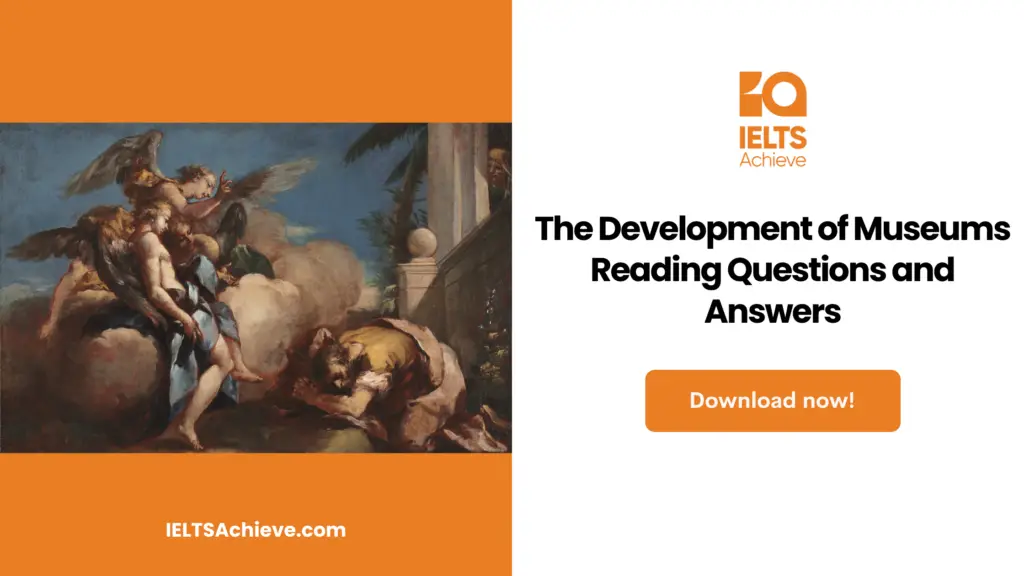The Blog post contains the following IELTS Reading Questions:
- IELTS Reading Yes/No/Not given
- IELTS Reading Multiple Choice Questions
Stay informed and prepared for success – Explore our comprehensive Reading Test Info page to get valuable insights, exam format details, and expert tips for mastering the IELTS Reading section.
Passage

Green Wave Washes Over Mainstream Shopping
A. Research in Britain has shown that green consumers continue to flourish as a significant group among shoppers. This suggests that politicians who claim environmentalism are yesterday’s issue may be seriously misjudging the public mood.
B. A report from Mintel, the market research organization, says that despite the recession and financial pressures, more people than ever want to buy environmentally friendly products, and a ‘green wave’ has swept through consumerism, taking in people previously untouched by environmental concerns. The recently published report also predicts that the process will repeat itself with ‘ethical’ concerns, involving issues such as fair trade with the Third World and the social record of businesses. Companies will have to be more honest and open in response to this mood.
C. Mintel’s survey, based on nearly 1,000 consumers, found that the proportion who look for green products and are prepared to pay more for them has climbed from 53 percent in 1990 to around 60 percent in 1994. On average, they will pay 13 percent more for such products, although this percentage is higher among women, managerial and professional groups, and those aged 35 to 44.
D. Between 1990 and 1994 the proportion of consumers claiming to be unaware of or unconcerned about green issues fell from 18 to 10 percent but the number of green spenders among older people and manual workers has risen substantially. Regions such as Scotland have also caught up with the south of England in their environmental concerns. According to Mintel, the image of green consumerism as associated in the past with the more eccentric members of society has virtually disappeared. The consumer research manager for Mintel, Angela Hughes, said it had become firmly established as a mainstream market. She explained that as far as the average person is concerned environmentalism has not gone off the boil’. In fact, it has spread across a much wider range of consumer groups, ages, and occupations.
E. Mintel’s 1994 survey found that 13 percent of consumers are ‘very dark green’, nearly always buying environmentally friendly products, 28 percent are ‘dark green’, trying ‘as far as possible’ to buy such products, and 21 percent are ‘pale green’ – tending to buy green products if they see them. Another 26 percent are ‘armchair greens’; they said they care about environmental issues but their concern does not affect their spending habits. Only 10 percent say they do not care about green issues.
F. Four in ten people are ‘ethical spenders’, buying goods which do not, for example, involve dealings with oppressive regimes. This figure is the same as in 1990, although the number of ‘armchair ethicals’ has risen from 28 to 35 percent and only 22 percent say they are unconcerned now, against 30 percent in 1990. Hughes claims that in the twenty-first century, consumers will be encouraged to think more about the entire history of the products and services they buy, including the policies of the companies that provide them, and that this will require a greater degree of honesty with consumers.
G. Among green consumers, animal testing is the top issue – 48 percent said they would be deterred from buying a product it if had been tested on animals – followed by concerns regarding irresponsible selling, the ozone layer, river and sea pollution, forest destruction, recycling, and factory farming. However, concern for specific issues is lower than in 1990, suggesting that many consumers feel that Government and businesses have taken on the environmental agenda.
Unlock your full potential in the IELTS Reading section – Visit our IELTS Reading Practice Question Answer page now!
Recommended Questions:
Renewable Energy IELTS Reading Question with Answer
Questions
Questions 1 – 6
Do the following statements agree with the claims of the writer of Reading Passage?
In boxes 1 – 6 on your answer sheet write
YES: if the statement agrees with the claims of the writer
NO: if the statement contradicts the claims of the writer
NOT GIVEN: if it is impossible to say what the writer thinks about this
1. The research findings report commercial rather than political trends.
2. Being financially better off has made shoppers more sensitive to buying ‘green’.
3. The majority of shoppers are prepared to pay more for the benefit of the environment according to the research findings.
4. Consumers’ green shopping habits are influenced by Mintel’s findings.
5. Mintel have limited their investigation to professional and managerial groups.
6. Mintel undertakes market surveys on an annual basis.
Enhance your skills in identifying information as True, False, or Not Given. Click here to discover expert strategies and techniques for mastering this question type in the IELTS Reading section.
Questions 7 – 9
Choose the appropriate letters A – D and write them in boxes 7 – 9 on your answer sheet.
7. Politicians may have ‘misjudged the public mood’ because …
A. they are pre-occupied with the recession and financial problems.
B. there is more widespread interest in the environment agenda than they anticipated.
C. consumer spending has increased significantly as a result of ‘green’ pressure.
D. shoppers are displeased with government policies on a range of issues.
8. What is Mintel?
A. an environmentalist group
B. a business survey organisation
C. an academic research team
D. a political organization
9. A consumer expressing concern for environmental issues without actively supporting such principles is…
A. an ‘ethical spender’.
B. a ‘very dark green’ spender.
C. an ‘armchair green’.
D. a ‘pale green’ spender.
Ready to improve your performance in Multiple Choice Questions (MCQs)? Click here to access our comprehensive guide on how to tackle MCQs effectively in the IELTS Reading section.
Questions 11 – 13
Complete the summary using words from the box below. Write your answers in boxes 10 – 13 on your answer sheet.
NB: There are more answers than spaces, so you will not use them all.
| The Mintel report suggests that in the future companies will be forced to practice greater 10.____________ in their dealings because of the increased awareness amongst 11.____________ of ethical issues. This prediction is supported by the growth in the number of 12.____________ identified in the most recent survey published. As a consequence, it is felt that companies will have to think more carefully about their 13.__________. |
| environmental research | armchair ethicals |
| honesty and openness | environmentalists |
| ethical spenders | consumers |
| politicians | political belief |
| social awareness | financial constraints |
| social record |
Unlock your full potential in the IELTS Reading section – Visit our IELTS Reading Practice Question Answer page now!
Recommended Questions:
Renewable Energy IELTS Reading Question with Answer
Answers for Green Wave Washes over Mainstream Shopping
1. Answer: Yes
2. Answer: No
3. Answer: Yes
4. Answer: Not Given
5. Answer: No
6. Answer: Not Given
7. Answer: B
8. Answer: B
9. Answer: C
10. Answer: honesty and openness
11. Answer: consumers
12. Answer: armchair ethicals
13. Answer: social record

We hope you found this post useful in helping you to study for the IELTS Test. If you have any questions please let us know in the comments below or on the Facebook page.
The best way to keep up to date with posts like this is to like us on Facebook, then follow us on Instagram and Pinterest. If you need help preparing for the IELTS Test, join the IELTS Achieve Academy and see how we can assist you to achieve your desired band score. We offer an essay correction service, mock exams and online courses.

